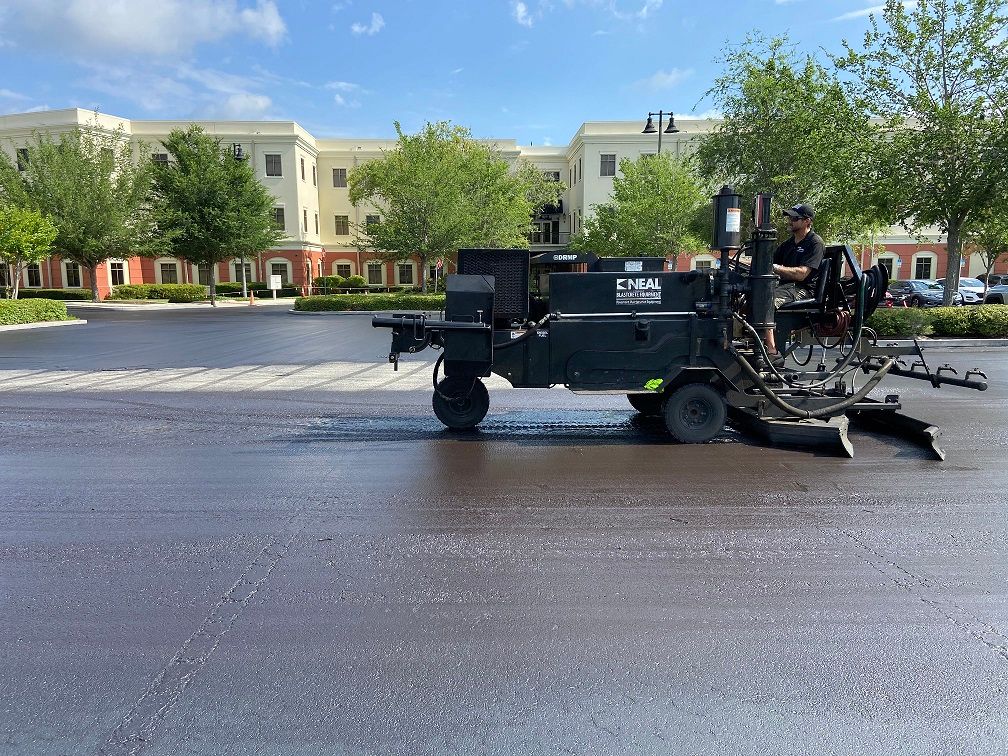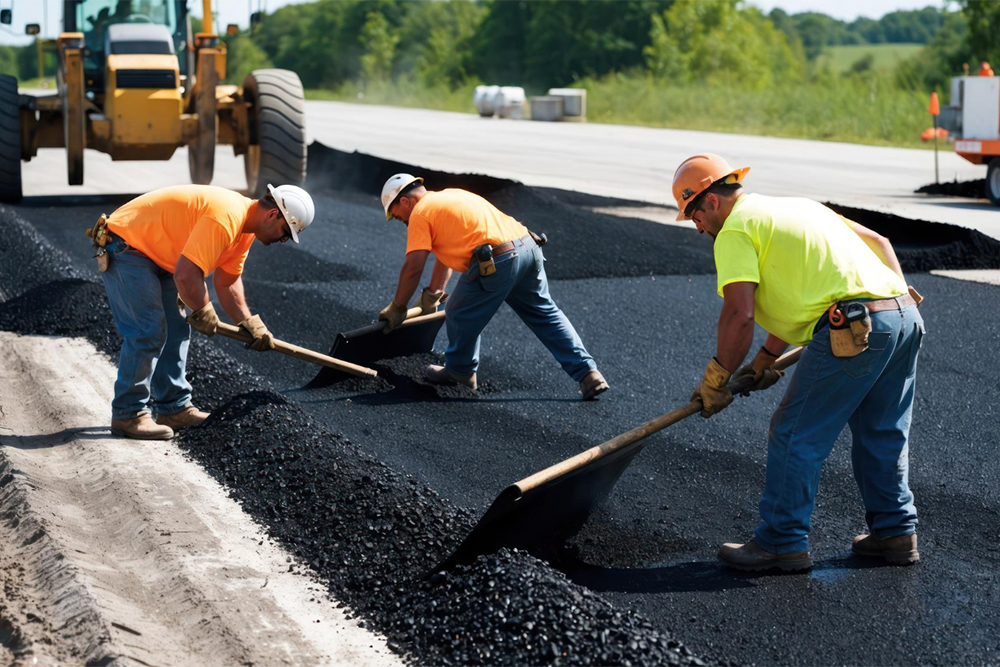

When most people think about asphalt paving, they focus on the smooth, black surface that vehicles drive on. However, what lies beneath that surface plays a far more critical role in determining whether your pavement will last five years or twenty-five years. The foundation of your asphalt pavement serves as the backbone of the entire structure, and understanding its importance can save you thousands of dollars in premature repairs and replacements.
Professional paving contractors know that a properly constructed foundation is the difference between a driveway that cracks within a few seasons and one that withstands decades of heavy use. Whether you're planning a new driveway, parking lot, or roadway, the foundation preparation process deserves your attention and investment.
The foundation of asphalt pavement consists of multiple layers working together to create a stable, long-lasting surface. Each layer serves a specific purpose and contributes to the overall strength and durability of the pavement.
The subgrade represents the natural soil beneath your pavement. This existing ground must be properly prepared before any other materials are added. Contractors evaluate the soil composition, moisture content, and load-bearing capacity to determine what modifications might be necessary.
Poor subgrade conditions can doom even the best asphalt installation. Clay soils that expand and contract with moisture changes, sandy soils that shift under load, or areas with poor drainage all require special attention during the foundation preparation phase.
Above the subgrade sits the sub-base course, typically consisting of crushed stone or gravel. This layer provides several critical functions:
The thickness of the sub-base varies depending on soil conditions, expected traffic loads, and local climate factors. Areas with heavy truck traffic or poor soil conditions may require sub-base layers of 12 inches or more.
The base course sits directly beneath the asphalt surface and provides the primary structural support for the pavement. This layer typically consists of crushed stone, crushed concrete, or specially engineered materials designed to interlock and create a stable foundation.
Proper compaction of the base course is essential. Without adequate compaction, the base will settle over time, leading to cracks, depressions, and premature failure of the asphalt surface.
The relationship between foundation quality and pavement longevity is direct and measurable. Studies show that pavements with properly constructed foundations can last 2-3 times longer than those with inadequate foundation preparation.
Your pavement's foundation must support not just the weight of vehicles, but also handle dynamic loads from acceleration, braking, and turning. A weak foundation will gradually deform under these stresses, causing the asphalt surface to crack and fail.
The load-bearing requirements vary significantly based on intended use. A residential driveway faces different stresses than a commercial parking lot or industrial facility. Professional contractors calculate these loads during the design phase and construct foundations accordingly.
Water represents one of the greatest threats to asphalt pavement longevity. When water penetrates the pavement structure and reaches the foundation, it can cause several problems:
A properly designed foundation includes drainage systems that direct water away from the pavement structure. This might include underdrain systems, permeable materials, or grading that encourages surface water runoff.
The foundation must provide uniform support across the entire pavement area. Any soft spots, depressions, or irregularities in the foundation will telegraph through to the surface, creating weak points where cracks and failures typically begin.
This uniformity requirement extends beyond just the materials used. The foundation must be constructed with consistent compaction levels, proper moisture content, and appropriate thickness throughout the project area.
Understanding common foundation issues helps property owners recognize potential problems before they become expensive repairs.
Poor compaction during foundation construction leads to settling over time. As the foundation materials compress under load, the asphalt surface develops depressions, cracks, and eventually potholes. This settling process can continue for years after initial construction.
Attempting to save money by reducing foundation thickness often backfires. Thin foundations cannot adequately distribute loads or provide necessary structural support. The result is premature cracking and the need for costly repairs or complete reconstruction.
Foundations that trap water rather than draining it away create ongoing problems. Standing water weakens the foundation materials and can lead to sudden, catastrophic failures during freeze-thaw cycles.
Using inferior materials in the foundation may seem like a cost-saving measure, but it typically results in shorter pavement life and higher long-term costs. Quality materials cost more initially but provide better performance and longer service life.
Professional asphalt paving requires careful attention to foundation construction procedures. Each step must be completed properly to ensure the finished pavement meets performance expectations.
Construction begins with thorough site preparation, including:
Foundation materials are installed in lifts, with each lift compacted to specification before the next is added. This process ensures uniform density and prevents future settling.
Contractors use specialized equipment to achieve proper compaction levels. Vibratory rollers, plate compactors, and other tools create the density needed for long-term stability.
Throughout the construction process, quality control measures verify that the foundation meets design specifications. This includes:
Florida's climate presents unique challenges for asphalt foundation design. The combination of high temperatures, intense rainfall, and occasional freeze events requires careful planning.
High temperatures cause asphalt to expand, placing stress on the pavement structure. A stable foundation helps manage these thermal stresses and prevents cracking or deformation.
Florida's heavy rainfall makes proper drainage essential. Foundation designs must handle large volumes of water quickly to prevent damage to the pavement structure.
Extreme weather events can test pavement foundations beyond normal design limits. Quality foundations help pavements survive these events with minimal damage.
Even the best foundation requires ongoing maintenance to achieve maximum service life. Regular maintenance protects the foundation and extends pavement longevity.
Sealing cracks prevents water from reaching the foundation, protecting against water damage and extending pavement life.
Keeping drainage systems clear ensures water flows away from the pavement structure rather than pooling or infiltrating.
Avoiding overloading and protecting the pavement from damage helps preserve both the surface and foundation.
While quality foundation construction costs more initially, it provides significant long-term value. The additional investment typically pays for itself through:
The importance of proper foundation construction cannot be overstated. Whether you're planning a residential driveway, commercial parking lot, or major roadway, the foundation determines your project's success.
Working with experienced contractors who understand foundation requirements ensures your pavement investment provides maximum value. Look for contractors who emphasize foundation quality and can explain their construction processes in detail.
Don't let poor foundation work undermine your pavement investment. Quality foundation construction represents the difference between a pavement that serves you well for decades and one that becomes a source of ongoing problems and expenses.
If you need professional asphalt paving in Daytona Beach, FL, contact Florida Sealcoating today for free estimates. Their experienced team understands the critical importance of proper foundation construction and can help ensure your pavement project delivers the performance and longevity you expect.
Get a free, no-obligation estimate for your asphalt project. Our team is ready to help protect and enhance your property.
(407) 942-3681